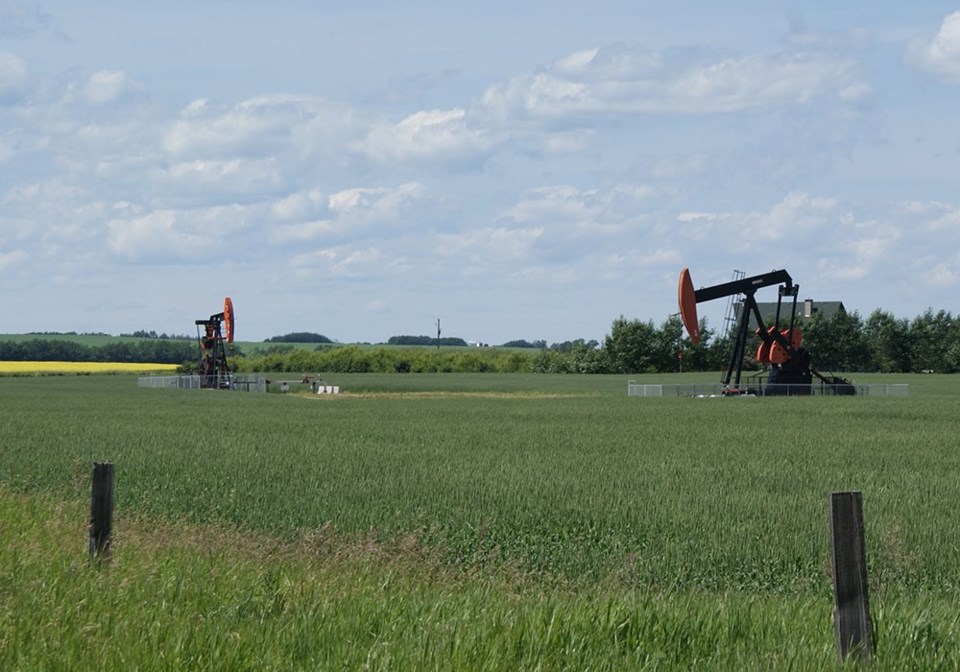Several resolutions passed at last week’s mid-term convention of the Saskatchewan Association of Rural Municipalities addressed the issue of tax arrears by oil and gas companies.
Forty-six of the province’s 296 RMs co-sponsored one resolution asking for the ability to register liens against the companies’ licences and a way to ensure they can act on that lien.
Jason Pilat, administrator for the RM of Eye Hill, said the licences should be treated the same as real property.
He told the convention that arrears are approaching $20 million at a minimum because not all municipalities responded to an inquiry.
He cited municipal property tax arrears from oil and gas companies at more than $10 million.
“This, combined with the arrears for education tax, of $3,876,171.26, bring the grand total of arrears of oil and gas taxes and written off to date to a bare minimum of $19,713,092.73,” Pilat said on behalf of the municipalities.
Court vesting orders sometimes result in taxes written off, he said. The RMs said if they could register liens that might make it more difficult for courts to do that.
Pilat also said companies wouldn’t be able to default on their obligations if they are trying to sell because the taxes would have to be paid in full before the transfer.
Another resolution asked for the province to change legislation to be able to suspend operating licences if companies aren’t up to date on their taxes.
Brock Minogue, councillor in the RM of Lacadena, said the municipality has been struggling to collect arrears since 2015. He said using a mechanism similar to agricultural lease land would mean the municipality would notify the government that the company is in arrears and the province would then deal with the company.
“It is a simple, straightforward and fair process,” Minogue said, adding it would relieve the uncertainty for municipalities trying to budget.
Companies would be more diligent in cleaning up nonproducing wells, he said.
A third resolution along similar lines asked the province to ensure compensation to municipalities for outstanding taxes from oil and gas companies through royalties collected.
“We need tax enforcement options sooner, before they get to $19 million of outstanding taxes,” said RM of Cambria administrator Monica Kovach.
A fourth resolution was aimed at all arrears. It asked that the mediation process be changed to take the burden of collecting property tax arrears off RMs.
Tom Whalen from the RM of South Qu’Appelle said repayment takes far too long.
He said property values have increased a lot in the last few years, resulting in an increase in borrowing power for property owners to be able to pay their taxes.
“It’s difficult for the RMs to determine accurate budgeting numbers when dealing with variables such as this, never knowing how much the RM will have in tax arrears for the upcoming year,” he said.
Councillor Lois McCormick from Duck Lake agreed it takes too long.
“RMs don’t want to take property from people but they do have to pay something so that they’re getting ahead,” she said.
Whalen said about 7.5 percent of South Qu’Appelle’s revenue is tied up in arrears.
“There’s a lot of gravel that is not being purchased or equipment that is not being replaced,” he said.
SARM president Ray Orb said there has been a noticeable increase in tax arrears in the last few years, especially from oil and gas companies.
He said municipalities are frustrated because if companies walk away from their leases there is nothing tangible that they can get their hands on and they don’t have the authority to take assets anyway.
“We’re looking at a meeting with (government relations) minister (Don) McMorris about options available to RMs,” he said.
“There is big trouble out there.”
SARM doesn’t track the total arrears that municipalities are facing.
Meanwhile, Orb said he also wants to discuss with the government relations minister a recent call from the Saskatchewan Growth Coalition for lower RM tax rates for resource and processing industries.
“We’re disappointed with some of the stakeholders there because we work with them,” Orb said.
The Agricultural Producers Association of Saskatchewan said the province should reject the proposal.
“It’s a simple calculation and agricultural ratepayers will have to make up the difference for any reductions for other sectors,” said APAS president Todd Lewis in a news release. “Farmers and ranchers built our essential rural infrastructure over the decades, and we are now at risk of subsidizing other users that want to take advantage of our investment.”
The coalition includes 21 organizations, including several chambers of commerce, along with the provincial body, the Canadian Association of Petroleum Producers, the Western Grain Elevator Association, AGT Foods and the Saskatchewan Heavy Construction Association.
The coalition has two main requests: competitive and predictable taxes by limiting the range of effective mill rate ratio on all property classes from 0.75 to 2.0 to create a more equitable distribution of the property tax burden and improved financial transparency from municipalities.
Lewis said the coalition wants lower mill rates for natural resources, manufacturing and construction but overlooks that agriculture will have to pick up the bill.

